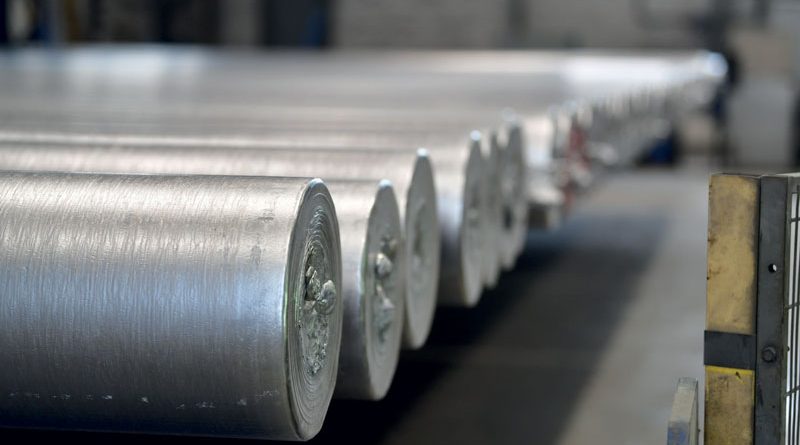Industry Restarts After the Pandemic and Finds No Aluminium to Process
Light metal is in short supply throughout Europe and prices are at their highest level in years. Gerhard Anger, managing director of Alu-met, one of Europe’s largest producers of secondary aluminium, analyses the reasons for a situation which is mainly affecting extrusion producers
The Austrian company Alu-met is one of the largest independent remelters in Europe and, with its two plants located in Schlins (near Bludenz, Austria) and Nachrodt (near Dortmund, North Rhine-Westphalia), it is strategically positioned in the heart of the European aluminium downstream, with a target market which includes Germany, Italy, Austria, Switzerland, France and beyond. Alu-met therefore offers a privileged perspective to analyse the current situation of the European aluminium market, characterised by a strong increase in demand and the difficulty of finding metal on the market. This is causing a remarkable extension of delivery times and is significantly affecting metal prices, with LME quotations and premiums on billets and foundry bars at their peak in recent years. A situation which has taken the entire downstream processing industry by surprise, and which we discussed in detail with Dr Gerhard Anger, managing director of Alu-met. “The market is very hot at the moment,” Gerhard Anger explained, “and it is difficult to fully understand why everyone is looking for billets today. Traders are also almost panicking also because of the high value of billet premiums and the apparent shortage of supply of quality metal. The current situation is partly linked to the resumption of production after the ‘pause’ imposed by the Covid-19 pandemic. Many companies had significantly reduced their inventories and were unprepared for the price rebounds caused by soaring commodity prices. In addition, imports of semis from China were halted. Overnight, more than 500,000 tons of Chinese semis, including extrusions and rolled products, went missing. Besides, government incentives in various countries have revived strategic sectors such as building and solar energy. Another factor to be taken into account is the restart of the automotive sector, a driving force for aluminium consumption, with the enormous pressure towards the production of electric cars, known for their greater use of light metal compared to combustion engines. We do not know how long this unexpected situation will last. Delivery times have lengthened. There is a perception among downstream companies that there is not enough aluminium on the market. Especially in Italy, where all processors are insistently looking for metal”.
Could you describe Alu-met’s activity?
“Alu-met GmbH is a remelter specialising in the remelting of internal scrap, our customers’ scrap (pre-consumer scrap) and post-consumer scrap, from which we make aluminium alloy extrusion billets. Alu-met is one of the largest independent producers of billets in Europe, particularly in the 6000 series of alloys, which are definitely the most widely used for extrusion. We use a good percentage of post-consumer scrap and machining scraps collected from our customers, exclusively from European countries. ASI certification guarantees our production cycle and our sources of supply. We produce about 150,000 tons of billets per year, but we have plans for future capacity expansion. Alu-met now employs more than 130 workers at our two plants and headquarters. We export about 70 per cent of our production. The turnover, which is obviously influenced by the price of aluminium, is between 200 and 250 million euros a year”.
Which alloys do you produce and in what diameters?
“Our main alloys are all from the 6000 series, especially 6060, 6063, 6005 and 6082, with some variations. These are the basic alloys for the extrusion of aluminium profiles. Regarding size, we offer the full range of standard diameters, from 178 mm (7”) up to 305 mm (12”)”.
What sets your company apart among secondary aluminium suppliers?
“Alu-met, with 150,000 tonnes of production, is the largest independent producer of extrusion billets in Western Europe. Independent means that we do not control any converters or extrusion production plants and do not have a primary aluminium smelter as our main supplier.
The geographical position of our two plants is strategic and allows us to serve almost all the main extruders in Northern Italy, Austria, Germany, Switzerland, France, Benelux and Denmark quickly and with low transport costs”.
Secondary aluminium is a key material for the ecological transition and the fight against climate change. How do your products fit in?
“Our plant in Schlins in Germany, Speedline Aluminium Gießerei GmbH, is certified according to EN ISO 9001, EN ISO 50.001, EN ISO 14001, EN ISO 45001 standards. Aluminium Nachrodt GmbH in Austria is certified according to EN ISO 9001, EN ISO 50.001, EN ISO 14001 standards. For both plants, ISO TS 16949 certification is also on its way, scheduled for the end of this year 2021. Regarding the environmental performance of our products, the latest revision of the Environmental Product Declaration (EPD) certifies a carbon footprint of 1.9 tons of CO2 per ton of billets produced (‘Cradle to gate’). This is a much better result than the European remelter average of 6 tons of CO2 per ton of aluminium produced”.

